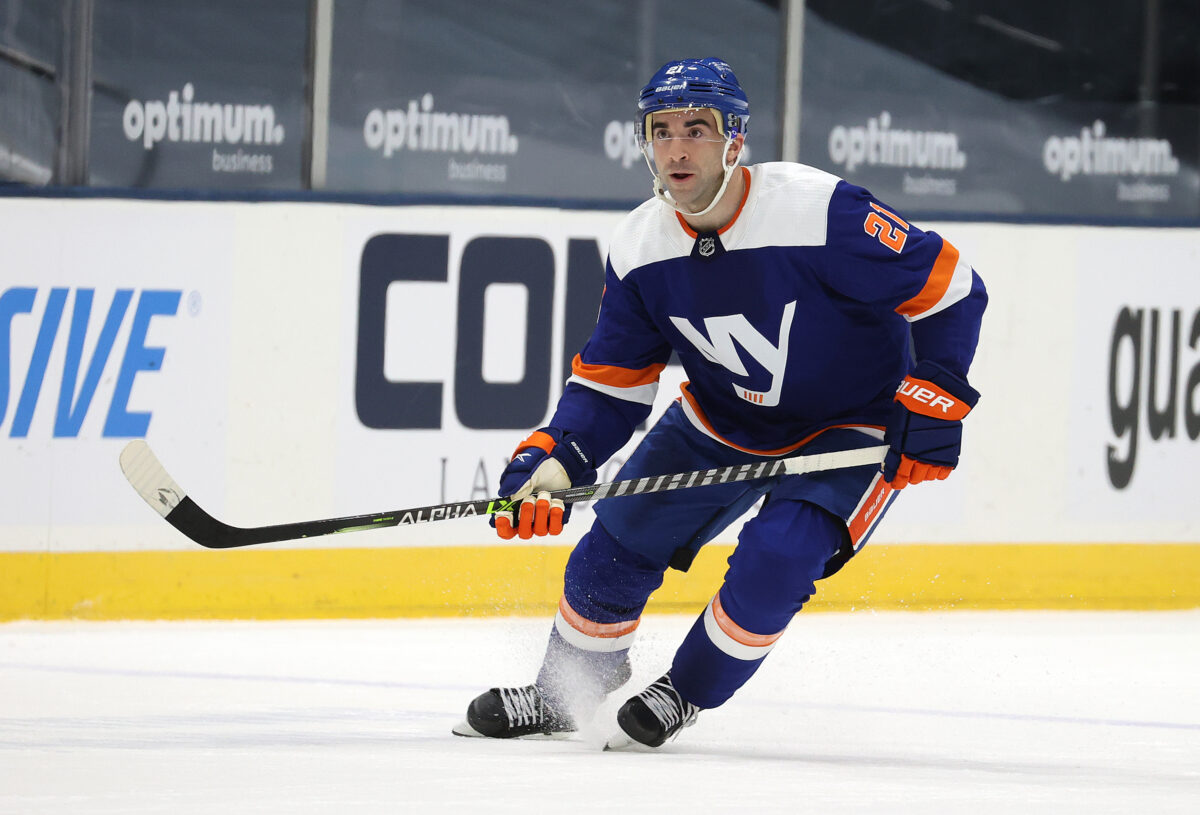The St. Louis Blues and Jaden Schwartz have been synonymous with one another since the 2010 NHL Entry Draft when the Blues selected the young Saskatchewan native 14th overall. Since then, Schwartz has enmeshed himself as a central piece of the team’s forward corps. He has played 560 games for the team, managing 154 goals and 231 assists, and is routinely discussed as “the straw that stirs the drink” in St. Louis. No one will forget the 12 goals and 8 assists (including two hat tricks) he scored en route to Stanley Cup glory in 2019.
But now, with unrestricted free agency looming, Schwartz’s future with the Blues seems uncertain for the very first time. After a lackluster season for both player and team, many question whether a lengthy contract extension makes sense for the franchise. In this article, we will discuss a number of reasons why the Blues should probably move on from Schwartz, before giving one scenario in which it makes sense to retain his services. It should be stressed: if the Blues do let Schwartz move to a new team this summer, it will not be with any hard feelings. He is almost universally adored in the fanbase, and moving on from a franchise centerpiece of over a decade would be bittersweet, even if it is a necessary evil.
Reason 1: Lackluster 2020-21
The first reason to consider looking elsewhere in free agency is the most obvious: the 2020-21 season may have been the worst season of Schwartz’s career. He has always been a streaky scorer, but this season, the winger found twine just eight times, the lowest number since his 2015-16 season (which was devastated by injury). Tragically, Schwartz lost his father, Rick, before the season began. It’s impossible to know how much that may have weighed on him throughout the campaign. But the fact remains: Schwartz’s .200 goals/game mark is the second-lowest of his career.

In our THW report card on Schwartz, I gave him an “F” grade. That may be harsh, but it mirrors the grade given by Blues’ Athletic beat reporter Jeremy Rutherford, who explained, “While [Schwartz’s] offense has been streaky in the past, he’s been able to fall back on his reputation as a dogged defensive player, but his Expected Goals percentage this season (49.16) was the lowest of his career” (from ‘‘This is embarrassing’: St. Louis Blues final 2020-21 report card following another first-round playoff loss,’ The Athletic NHL, May 25, 2021).
Blues’ NHL.com beat reporter Lou Korac was slightly nicer, giving Schwartz a “D” grade, adding: “Schwartz… will never be questioned for his work ethic and commitment, [but] for a guy that had a contract at $5.35 million AAV and now set to become a UFA this summer, the offense was quite frankly anemic… Bottom line, simply not good enough for a player averaging top-six line minutes.” The reviews are consistently critical of Schwartz’s results, and while one season does not make a career, it certainly doesn’t create a good environment for the player to demand a long, costly extension of his team.
Reason 2: Schwartz’s Injury History
Perhaps a bigger concern in signing Schwartz to a long-term contract extension is his tricky history with injuries. He isn’t a player who has trouble with one consistent or nagging injury, i.e. a concussion problem or a bad back or shoulder. But he does seem to have trouble staying healthy. Schwartz missed 16 games this season due to an oblique injury. In 2015-16, he played just 33 games because of a broken ankle. But even excluding that season, Schwartz has played just 85.8 percent of possible games played over the last five seasons.
Of course, hockey is a physical sport. Very few players can avoid missing a game or two, or even a week or two, here or there. Not every player can be a Keith Yandle or Phil Kessel, on the verge of breaking the NHL’s iron man record. But when a player misses on average one out of every seven games over a five-season period, that becomes more than a concern. It certainly doesn’t mean Schwartz has no value. But it should moderate his contract demands considerably. If a player wants to demand top dollar, he needs to be ready to play top minutes. And Schwartz hasn’t been consistently able to do that in his career.
Reason 3: Loaded Free Agent Market
At this point, some fans may think: “a reunion with Schwartz won’t be perfect, but the Blues have almost no alternatives at left wing, so it’s necessary.” But this summer’s free-agent class might be the Blues’ secret weapon. Sports Illustrated ranks Schwartz as the seventh-best LW available, and he isn’t high above several others. Even if we exclude the potentially too-expensive (Gabriel Landeskog, Taylor Hall, possibly Ryan Nugent-Hopkins), and the unrealistic Alex Ovechkin, there are still several potential options the Blues could add, among them Zach Hyman, Tomas Tatar, Kyle Palmieri (though he is listed as a RW), Brandon Saad, Nick Foligno, Mikael Granlund, and more.






This isn’t the place to evaluate the potential fit or cost of each of those players. The point is merely to emphasize that the Blues have plentiful options. They could easily replace Schwartz through free agency with one or potentially two similar LWs. Of course, the old adage “a bird in the hand is worth two in the bush” could apply here. Put another way, “the devil you know is better than the devil you don’t.” Schwartz’s familiarity with the Blues could serve as an advantage in this regard. But if a team who has been embarrassed in the first round of the playoffs two seasons in a row is looking for a shakeup, they certainly wouldn’t have to look far at left wing.
Schwartz Could Still Have a Home in St. Louis
This article has argued three reasons the Blues should consider moving on from Schwartz in free agency. And it is my opinion that they should, not only because of Schwartz’s lackluster offensive production but because the team seems to need a jolt. But all of these arguments are based on the assumption that Schwartz will want to sign a contract similar to or more expensive than his five-year, $26.75 million contract extension ($5.35 million cap hit) from 2016. But a number of factors might prevent that.
Coming off a career-low season, with a history of injuries, facing a ton of UFA competition during the flat cap era, Schwartz may find that he can command nowhere near the top dollar he might hope for. For example, Evolving-Hockey projects a three-year extension at a $4.757 million cap hit. If Schwartz ends up having to sign something more like that, or like David Perron’s most recent four-year, $16 million contract as a UFA, that becomes much more palatable for the Blues.
Schwartz is a valuable role player, a long-tenured franchise staple, an invariably hard worker, and a beloved fan favorite. No one is eager to see him leave. But judging on recent performance, the Blues cannot consider paying him like a top-six forward. If another team will, then it’s time to respectfully part ways and find an alternative in St. Louis. But if Schwartz wants to stay and is willing to sign a considerably cheaper deal, then the marriage may be able to continue. If it does, he will climb in the record books of franchise history. Should that happen, there’s no question that he will have earned every bit of his success.